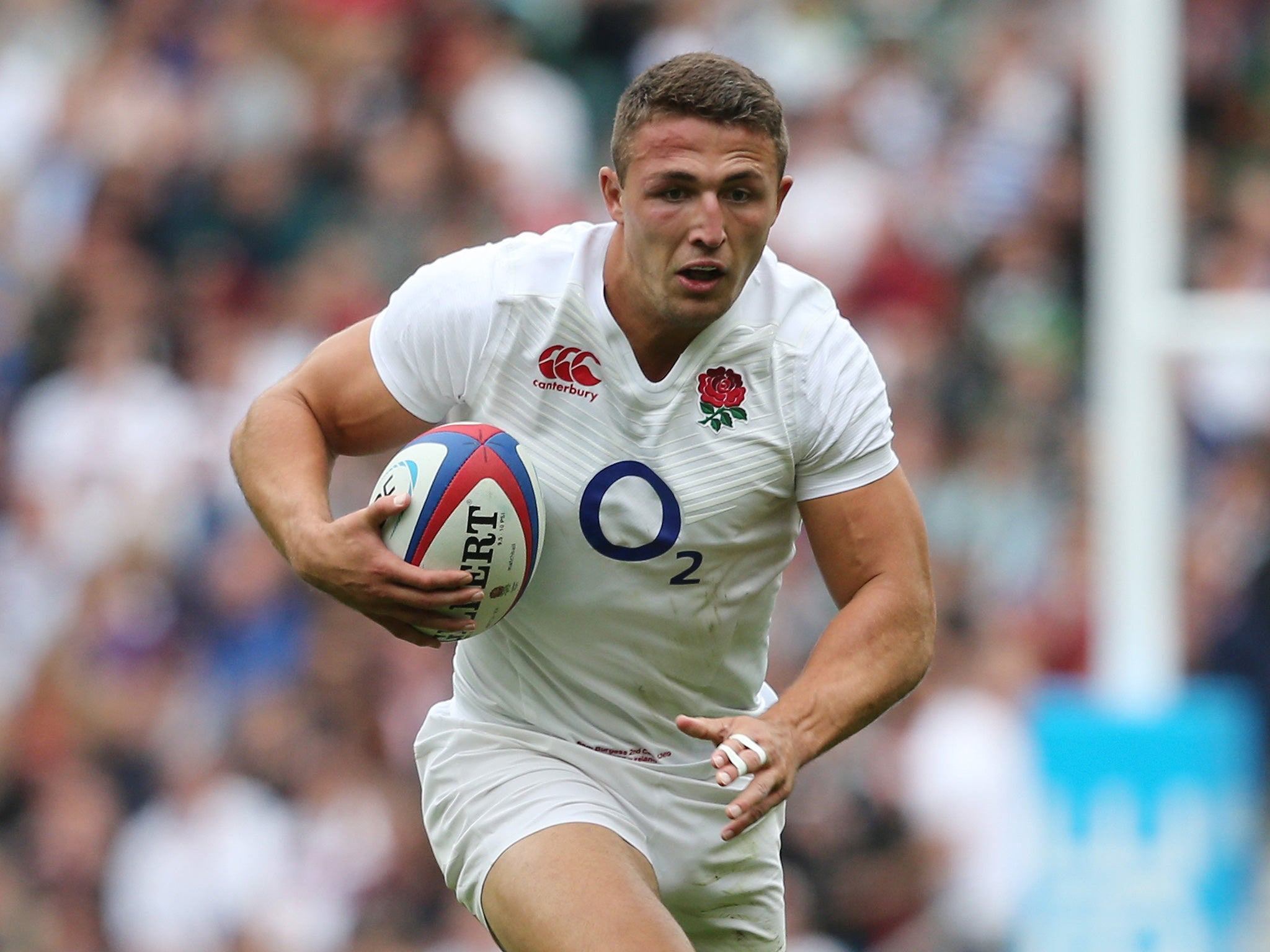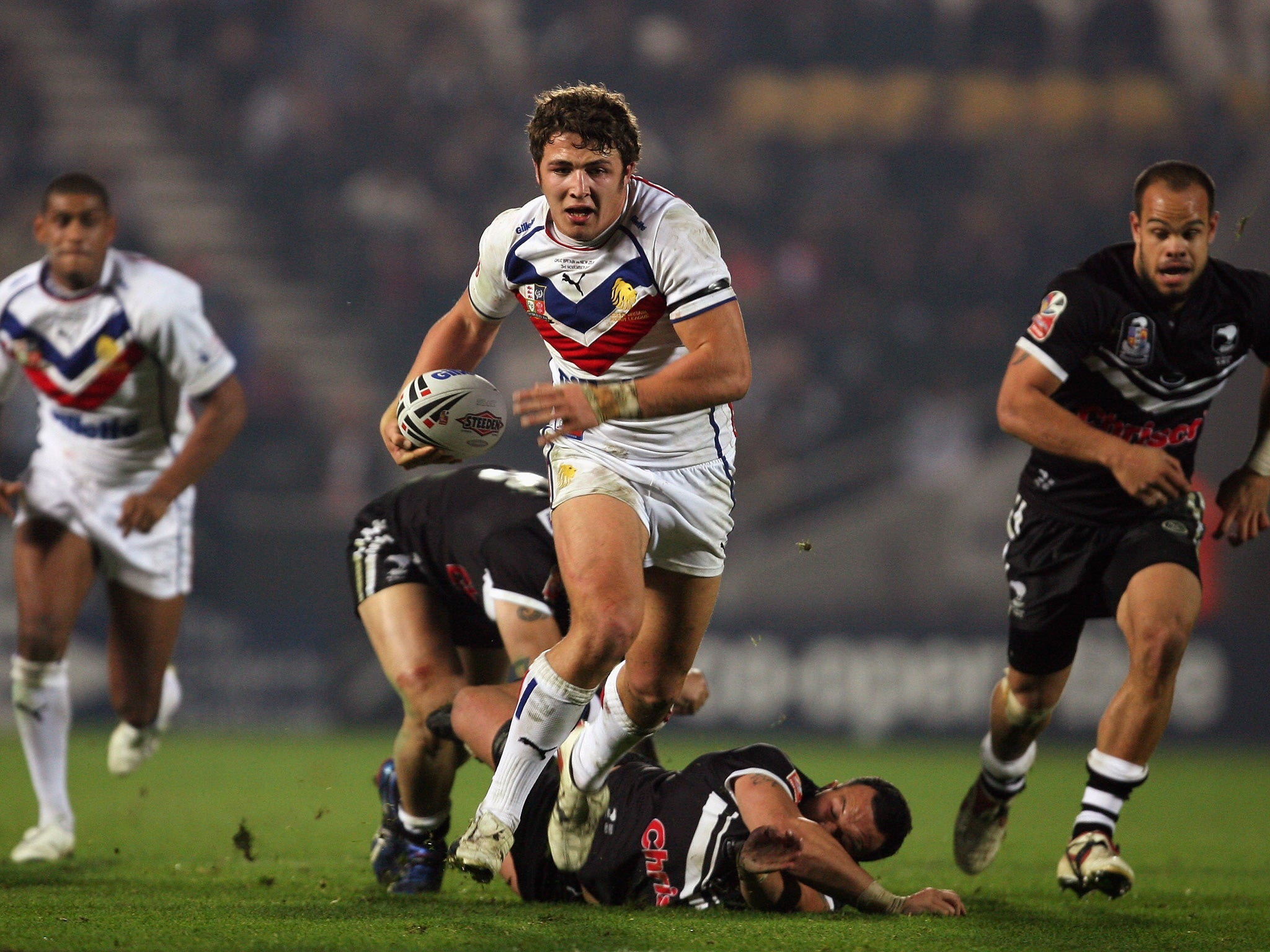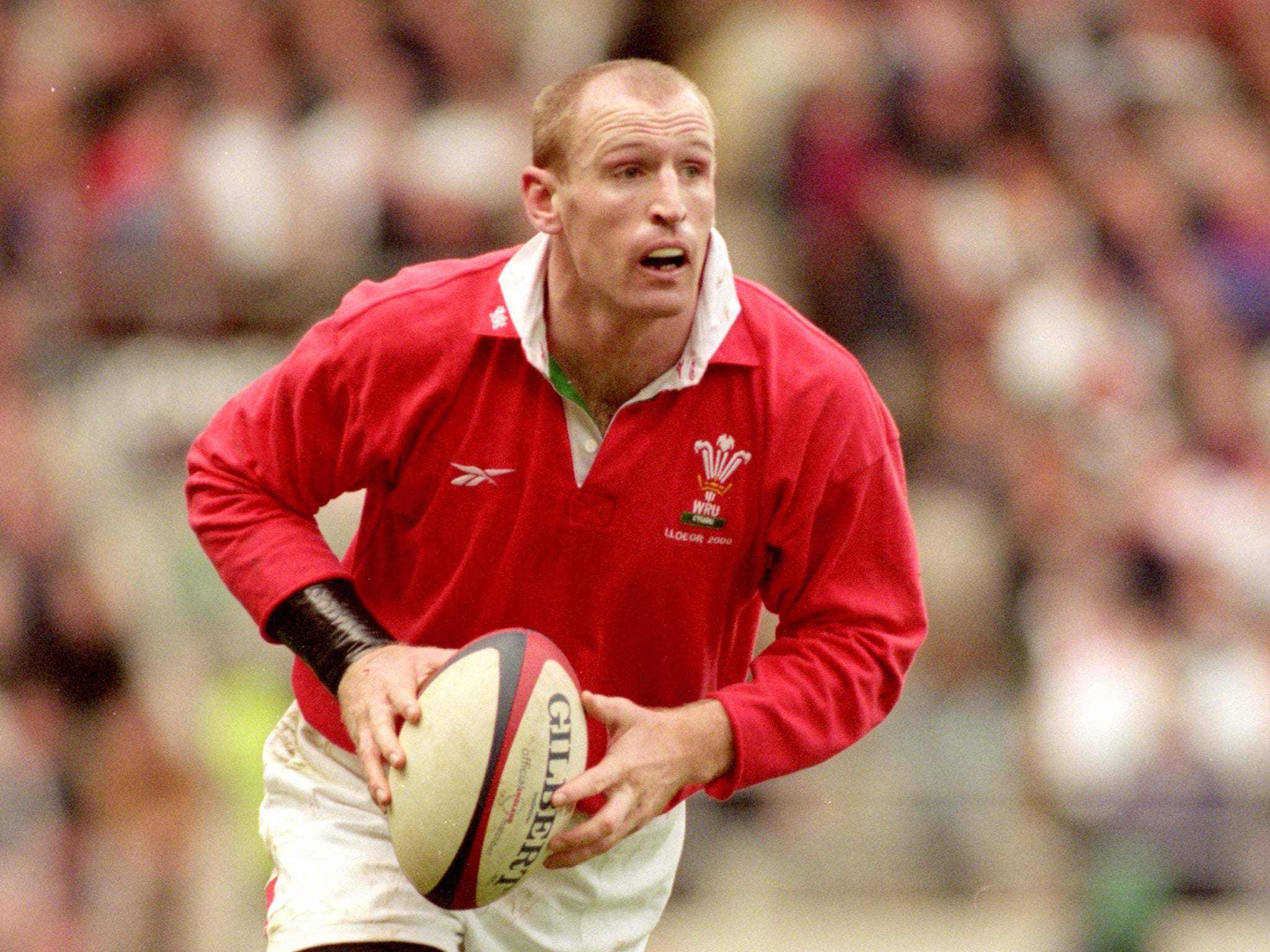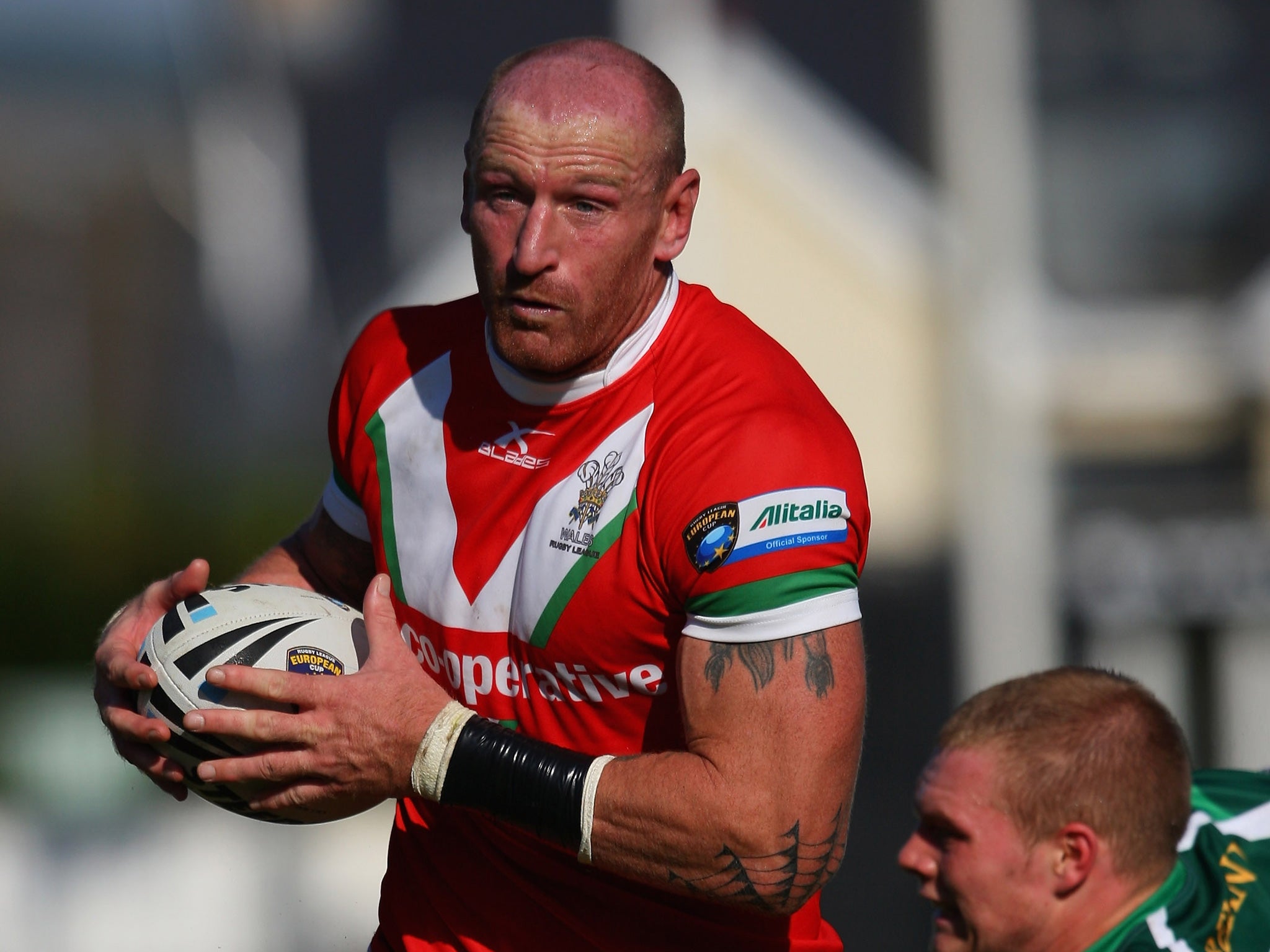RWC 2015: No winners when two codes clash: Isn't it time that rugby league and union started working together?
The Grand Final and England v Uruguay are both being played in Manchester, but league and union remain miles apart in terms of respect

Your support helps us to tell the story
From reproductive rights to climate change to Big Tech, The Independent is on the ground when the story is developing. Whether it's investigating the financials of Elon Musk's pro-Trump PAC or producing our latest documentary, 'The A Word', which shines a light on the American women fighting for reproductive rights, we know how important it is to parse out the facts from the messaging.
At such a critical moment in US history, we need reporters on the ground. Your donation allows us to keep sending journalists to speak to both sides of the story.
The Independent is trusted by Americans across the entire political spectrum. And unlike many other quality news outlets, we choose not to lock Americans out of our reporting and analysis with paywalls. We believe quality journalism should be available to everyone, paid for by those who can afford it.
Your support makes all the difference.Can there be a sweeter day than this for those in rugby league who have had their fill of rugby union – a sport so high and mighty that it has the temerity to call its international competition the Rugby World Cup, as if to say there is only one code?
You might say their sport is a miracle. It was born out of northern manufacturing communities such as Featherstone, Castleford, Wakefield and the wool-making areas of Dewsbury and Batley where the old economic means which fuelled the clubs are long gone. Yet still sides have survived – through Thatcherism and all that has followed on. And so it will come to pass that 75,000 people – the biggest crowd for a Grand Final – will pack into Old Trafford to see Leeds Rhinos play Wigan Warriors, two hours before England’s meaningless match with Uruguay, the World Cup’s worst side, five miles east at the City of Manchester Stadium. Category A tickets to see Stuart Lancaster’s side were selling for £260 last Saturday. Two days ago, they were listed at £59 on Viagogo.
For a sense of the delight felt by some Leaguers – schadenfreude doesn’t begin to describe it – try Twitter, where the passion of those who follow the code has found its medium. The hubris being experienced by England, lucratively sponsored by Land Rover, Emirates, Societe Generale and more and with #carrythemhome plastered across the team bus which has been driving them around Manchester’s fringes this week, is all the more satisfying given what has befallen Sam Burgess. When one of the greatest individuals to have played the league code – who runs and tackles in the raw – was characterised as a cause of English failings, it confirmed every preconceived notion about the southern toffs’ game. It was the same disregard for proletarian grit, league people will tell you, which caused the 1895 breakaway, when the southern gentleman-amateurs objected to working-class players being financially compensated for missing their Saturday morning shifts. As perceived acts of betrayal go, the Burgess business has not been far behind the French rugby union collaborating with the Nazi puppet Vichy regime to stamp out league during the Second World War.
The bad news for those who want to see deepening damage for “yawnion” – as some league fans like to describe a sport they view as lacking in their own game’s rewards for free running and thrilling tries – is that the financial fall-out for the RFU will not be serious. Domestic union league attendances, which have grown by 40 per cent since 2005, are not likely to fall off much. Union’s new TV deal, announced in March, was worth 80 per cent more than the previous one. That’s more than enough to maintain the current mass migration of the best players from league to union, flipping the 1970s and 1980s exodus when union players like Jonathan Davies flocked from their then-amateur sport for wages on offer in league.

The RFU will have spent £10m introducing the sport to state schools by 2019, with emphasis on those outside the sport’s traditional southern base. The circumstances might not have been ideal but Lancaster spent this afternoon encouraging local schoolchildren.
The St Helens captain Jon Wilkin, an articulate voice for his code, views union’s use of the school network to grow participation with admiration. “League rejects the school network and relies on amateur clubs to a great extent,” he says. “I’m not sure I wanted to play rugby league but I did because my dad went. I came to love it, but would I have played independently? I’m not sure.”
Work in schools, of course, costs money, and with league’s struggle to break out beyond its regional footprint that has been a struggle.
“Not being a truly national game makes the TV audiences and column inches less and that makes it hard to compete,” Wilkin reflects. The talent drain, with Burgess this week committing to developing himself as a flanker at Bath, has become a one-way street. Without the money Sky TV has put into league since 1995, the code he left might have struggled to exist.
The growing financial gulf has meant more twisted blood than ever between the louder supporters of the league code, though the noise is borne of pride as much as envy. League, after all, is the sport which has given life and legend to such places as Widnes, Warrington, Wigan and St Helens which – if size dictated presence – would otherwise be nowhere near the sporting map. Only three cities – Hull, Leeds and Wakefield – sustain league sides. “If you get someone who feels inferior, there are two ways of dealing with it,” says Wilkin. “Retreat or go on the attack. Our fans do go on attack. They might sound defensive. But they love their sport and union can be very dismissive of it.”
The antipathy simply does not exist in Wales, where league’s struggle to take off has been a product of the strength of the union code: no more, no less. “Everyone in Wales was brought up on union and that’s the end of it,” says Mike Rowley, the former Pontypridd forward who has recently concluded a 10-year stint as chairman and chief executive of Wales Rugby League. “Far more people play union and I can’t ever see that changing.”
The Crusaders franchise was moved from south to north Wales but folded all the same. The Neath-based South Wales Scorpions, now the principality’s best side, operate down in England’s fourth tier. A geographical divide between codes also exists in Australia, with league claiming Outback areas such as Queensland and New South Wales being more union land. But it is not a split riven by class envy. In nowhere but England is the fissure built on enmity.

League – whose dismally uncompetitive international game hands union, with its myriad World Cup nations, another huge advantage – has more weaknesses than some of its loudest proponents may care to admit but it should be focused on them, rather than on hating union, says Brian Carney, whose decade playing both codes brought periods at Munster and Wigan and Ireland international caps at league and union.
“They are just two separate sports and it’s a folly, 120 years on, to be comparing them. If you don’t like football then fine, but why hate it? The codes were born out of one sport. The crossover of players has reignited the conversation but what’s past is past. The French government acknowledged the wrong done during the Vichy period. That’s passed. It’s all passed. It’s time to move on.”
Carney, whose thoughtful work as a Sky analyst on league has contributed to the trend of many new fans being introduced to the game in their own front rooms, argues that the game needs more people viewing it and better people administrating it. It can advance by looking for points of difference – as the phenomenally successful UFC did when it sought a different space to boxing – rather than demonstrate it is materially “better” than union. “League has a product which looks brilliant on TV,” Carney says. “It’s non-stop. It’s played by very brave, very athletic individuals. If it were played in front of bigger crowds and bigger stadiums, it would be a bigger proposition. We could see a change in the drift of the best players. Finance drives those deals.”

For today, league will have that crowd, that stadium, and though the two codes’ complicated past prevented any such collaboration, league might have prompted in union followers the notion of sampling its own event before Lancaster’s players run out. League’s natural aversion to English knights of the realm may cause it to recoil from the fact that Sir Clive Woodward has spoken often of how much he admires – and has picked up – from the game. Gareth Thomas describes vividly in his fine autobiography, Proud, his utter inability to catch the pace and power of league, having made the transition.
“League is a much simpler game,” Wilkin reflects. “But it presents different challenges. There is a bigger aerobic element. There are fewer big men and those there are introduced for impact and then put back on the bench. I suppose you would have to say that our two sports have been a vehicle for existing tensions within society. But when you put all that aside, there is nothing finer than a rugby, played at its best, whatever the code.”
Join our commenting forum
Join thought-provoking conversations, follow other Independent readers and see their replies
Comments